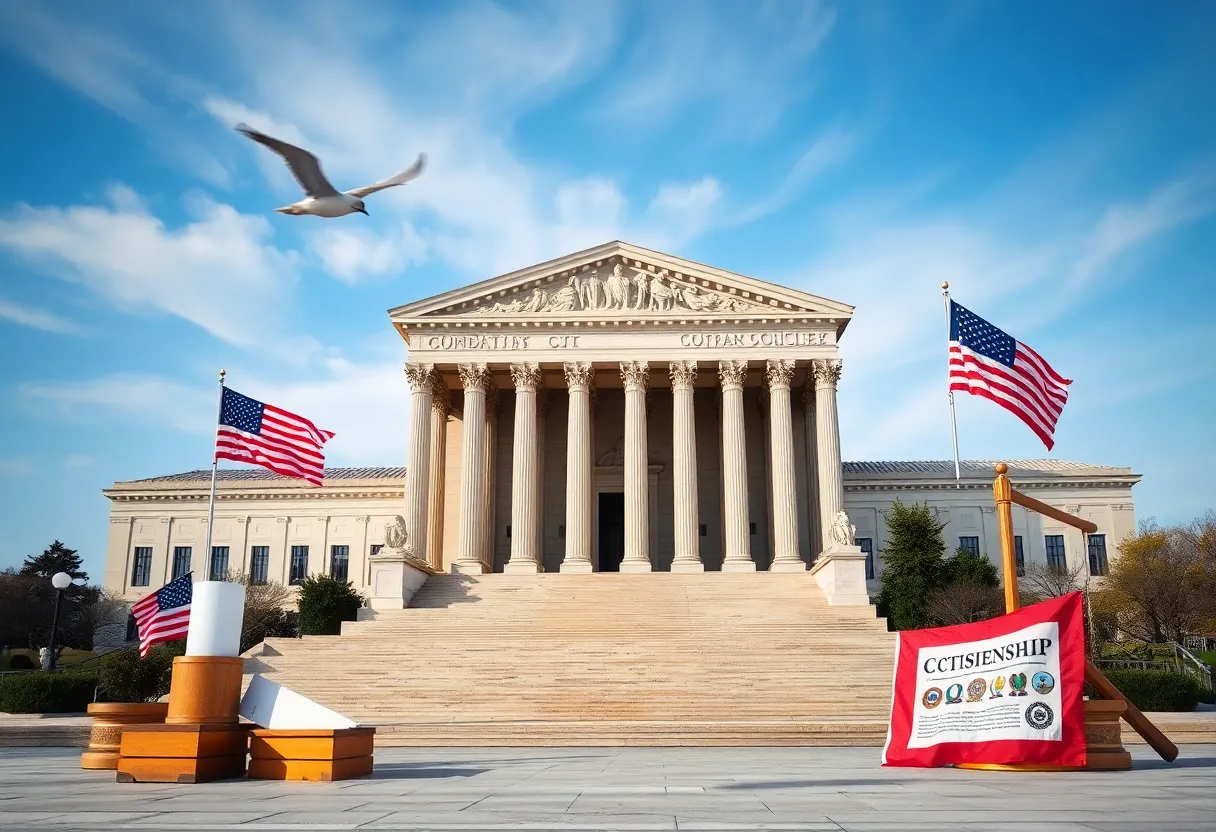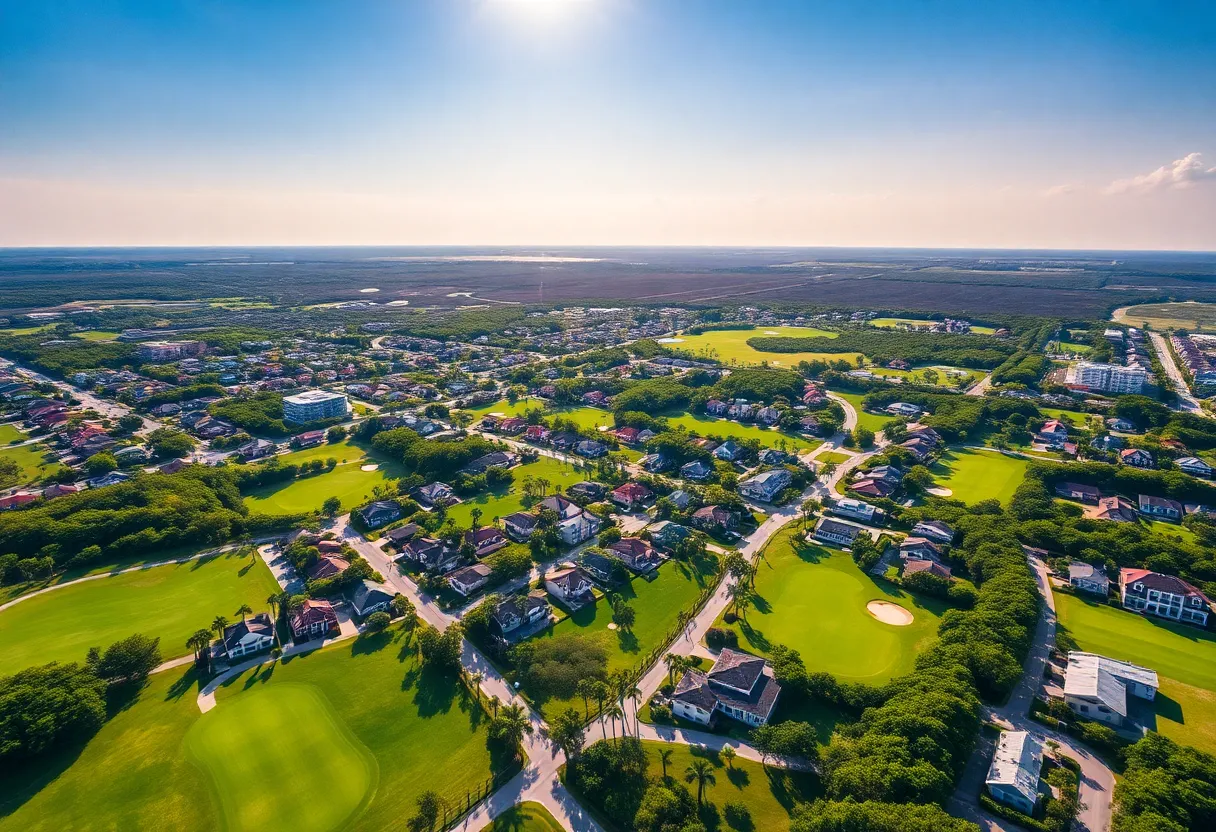News Summary
The U.S. Supreme Court has ruled to restrict lower-court judges from issuing nationwide injunctions against executive policies, allowing Trump’s birthright citizenship order to proceed in 28 states. This ruling raises legal questions about the constitutionality of such orders and the balance of power between the presidency and judiciary. Advocates for immigration rights anticipate further challenges, while the ruling is seen as a victory for the Trump administration, prompting discussions about the impacts on future executive power.
Supreme Court Limits Nationwide Injunctions, Impacting Trump’s Birthright Citizenship Policy
In a significant ruling, the U.S. Supreme Court has decided to limit the ability of lower-court judges to issue nationwide injunctions that block policies coming from the executive branch. This 6-3 decision, penned by Justice Amy Coney Barrett, indicates that lower district court judges may have overstepped their bounds by imposing sweeping injunctions.
The ruling means that President Trump’s executive order aimed at ending birthright citizenship can go into effect in 28 states that have not contested it. Currently, birthright citizenship provides that anyone born on U.S. soil automatically becomes a citizen—a policy that this executive order seeks to change, particularly affecting the children of undocumented immigrants and foreign visitors.
Legal Questions Still Loom
While the ruling allows the order to move forward in some states, it did not focus on whether Trump’s executive order is constitutional. This leaves the door open for the legality of this policy to potentially return to the Supreme Court again next year. Legal experts suggest that this could lead to an uptick in individual lawsuits and class actions, which could challenge the overall effectiveness of the president’s agenda going forward.
Rift Among Justices
The decision reflects a divide among the justices—6-3, primarily along ideological lines. The conservative justices are aligned with the ruling, while the liberal justices voiced strong dissent. In her dissent, Justice Sotomayor pointed out that the ruling undermines the rule of law, suggesting it grants the executive branch the ability to act beyond the law against those who are not part of a lawsuit.
In anticipation of subsequent legal challenges, the Supreme Court has chosen to postpone enforcement of the ruling for 30 days. This grace period allows for alternatives, such as potential statewide or regional class-action lawsuits, which advocacy groups are likely to pursue. Such challenges could result in a mixed bag of citizenship rules across different states, causing confusion about rights based on where one resides.
Reactions to the Ruling
Trump’s administration has heralded this Supreme Court ruling as a victory for the Constitution and the separation of powers. During a press conference, Trump characterized the ruling as a “giant win,” expressing that it empowers his administration to implement policies that had faced hurdles until now.
Critics of the ruling, including prominent lawmakers, have described it as a movement towards authoritarianism. Senator Chuck Schumer emphasized the urgent need for Congress to step in and place checks on presidential power. Meanwhile, Trump’s Attorney General Pam Bondi reacted to the decision favorably, calling previous nationwide injunctions “lawless” and arguing that the ruling restores essential presidential authority.
Historical Context of Birthright Citizenship
Birthright citizenship is grounded in the 14th Amendment and has been a topic of debate for several years. It was established to ensure that many individuals would have citizenship rights after the Civil War. However, this has been a controversial issue, especially since Trump has actively sought its termination since his first campaign.
Potential Impacts on Future Administrations
The ramifications of this ruling may extend well beyond the immediate issue at hand. By reducing the checks on presidential power, this decision alters the judiciary’s role in overseeing executive actions. It underscores a fundamental question about how executive authority will be balanced in future administrations, regardless of political affiliation.
Indeed, as courts adapt their roles in light of this ruling, the legal landscape is set to evolve. The ongoing debate surrounding birthright citizenship has only intensified, and challenges to Trump’s executive order will likely shape public policy in the months and years to come.
Deeper Dive: News & Info About This Topic
- Washington Post
- Wikipedia: Birthright Citizenship in the United States
- The Guardian
- Google Search: Birthright Citizenship
- BBC News
- Encyclopedia Britannica: Birthright Citizenship
- AP News
- Google News: Supreme Court Decisions

Author: STAFF HERE ORLANDO WRITER
ORLANDO STAFF WRITER The ORLANDO STAFF WRITER represents the experienced team at HEREOrlando.com, your go-to source for actionable local news and information in Orlando, Orange County, and beyond. Specializing in "news you can use," we cover essential topics like product reviews for personal and business needs, local business directories, politics, real estate trends, neighborhood insights, and state news affecting the area—with deep expertise drawn from years of dedicated reporting and strong community input, including local press releases and business updates. We deliver top reporting on high-value events such as Orlando International Fringe Theatre Festival, Megacon Orlando, and Central Florida Fair. Our coverage extends to key organizations like the Orlando Economic Partnership and Hispanic Chamber of Commerce Metro Orlando, plus leading businesses in leisure and hospitality that power the local economy such as Walt Disney World Resort, AdventHealth, and Universal Orlando. As part of the broader HERE network, including HEREJacksonville.com, HEREPetersburg.com, HERETallahassee.com, and HERETampa.com, we provide comprehensive, credible insights into Florida's dynamic landscape.




